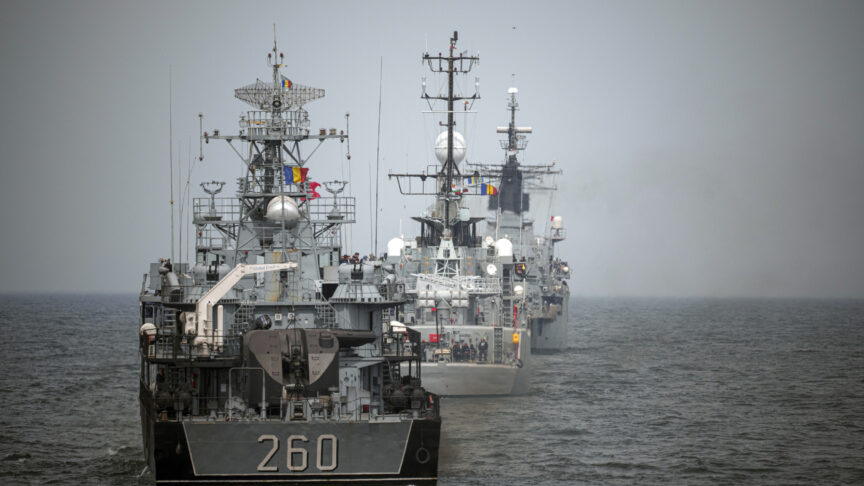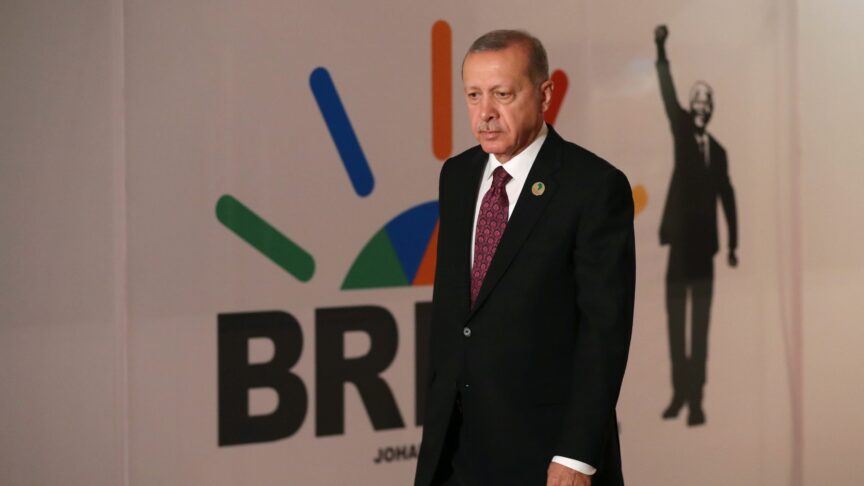Golden carrots
With EU enlargement no more on offer, the EU?s neighbourhood policy faces increasing difficulties
(English Translation)
In foreign policy jargon, the distinction between “sticks” and “carrots” is frequently made in order to describe two different though not necessarily mutually exclusive ways of conditioning the actions of neighbours. It may not be the most appropriate terminology (the vision of one’s neighbour as a donkey to be beaten if it misbehaves doesn’t seem very diplomatic) but it is useful for discussing the nature and effectiveness of a determined foreign policy.
So whilst Washington is responsible for fifty percent of the world’s defence spending, something which indicates a certain predilection for coercive instruments (sticks), the European Union likes to conceive of its foreign policy as a shop window full of carrots (trade, investment, development assistance, visas, etc.). In addition, the European Union also has a highly powerful foreign policy instrument at its disposal: the promise of accession. With the incentive of membership, countries as far apart and different as Lithuania and Greece, Spain and Poland, have left their internal differences behind and put into place very expensive reforms, accepting thousands of pages of community legislation as it stands, without complaint. Quite rightly, the promise of accession has been unanimously considered the “golden carrot”.
As is commonly known however, enlargement, so long the flagship of the European armada, is today a submarine which lies inert hundreds of kilometres below the surface. The incapacity of EU member States to agree upon institutional reforms which would allow a Union of 27 members to function efficiently, along with the highly disappointing outcome of recent Rumanian and Bulgarian enlargement, have led to a mood of pessimism amongst elites and European public opinion, which is generally described as “enlargement fatigue”.
In such circumstances, the EU has for some time been faced with a twofold problem: on the one hand, it has to find a way of honouring existing enlargement commitments with countries such as Croatia and Turkey, as well as making the European future of Serbia, Montenegro, Macedonia, Albania and Bosnia-Herzegovina seem credible. And on the other hand, it has been forced to come up with a neighbourhood policy for countries unable or unwilling to become members which, despite there being no accession incentive, ensures the EU is surrounded by stable, prosperous and well governed countries.
The success of this neighbourhood policy has been very modest to date, which has led to a steady stream of proposals on how to beef it up. Not so long ago, President Sarkozy launched the “Union for the Mediterranean”. Now, a joint Swedish-Polish initiative has seen the “Eastern partnership” launched, which aims to strengthen EU relations with Belarus, Ukraine, Moldova, Armenia, Georgia and Azerbaijan, offering new and deeper levels of free trade, and technical assistance for political and economic reforms and improvements in visa regimes. Once again, however, a number of absolutely disparate countries are included under one policy; just as the Union for the Mediterranean has to withstand the disparities between neighbours of the South, something similar occurs here, with Belarus hypnotized by Moscow, Ukraine highly unstable, Georgia wanting to play David against Goliath, and Azerbaijan completely indifferent to European values but with sufficient gas reserves to make us look the other way.
As long as the EU’s accession commitments continue to flounder and it fails to put a successful neighbourhood policy into place, Europe’s neighbours will demand an alternative golden carrot with growing insistence: NATO membership. Hence, next year and coinciding with the 60th anniversary of its foundation, the Atlantic Alliance will invite Albania, Croatia and Macedonia (if Greece lifts its membership veto on the latter) to its headquarters. At the same time, just as was agreed at the Atlantic Council last week, it will continue to prepare Ukraine and Georgia for future membership (albeit without a firm date) something which is creating all kinds of internal tensions within the Alliance.
With good reason, many Europeans fear NATO enlargement will polarise relations with Russia even further. However, it is just as easy to understand why these countries want to join NATO as it is difficult to come up with arguments against the idea. Evidently Russia, so fond of threats and bravado, cannot be allowed dictate who joins NATO, nor can NATO accept spheres of influence or regimes with limited sovereignty. Another matter altogether is that if the European Union functioned as it ought to, it could say to the Americans “thanks for the offer, but we’ll take care of this”. But once again, unless Europeans come to an agreement and are capable of assuming leadership in relations with Russia, the US will make the decisions and Europe will be left to deal with the consequences. [email protected]
Translated from Spanish by Douglas Wilson
Zanahorias de oro
Published in El País on 8 December 2008
En el argot de la política exterior se recurre frecuentemente a la distinción entre palos y zanahorias para describir dos maneras diferentes, aunque no necesariamente excluyentes, de condicionar las acciones de los vecinos. No es que la categorización sea muy afortunada (la visión del vecino como un burro al que apalear si no se comporta no parece muy diplomática), pero es útil para discutir el carácter y eficacia de una determinada política exterior.
Así, mientras Washington es responsable del 50% del gasto mundial en defensa, lo que indica un cierto gusto por los instrumentos coercitivos (los palos), la Unión Europea gusta de concebir su política exterior como un escaparate lleno de zanahorias (comercio, inversiones, ayuda al desarrollo, visados, etcétera). La Unión Europea dispone, además, de un poderosísimo instrumento de política exterior: la promesa de adhesión. Con el incentivo de la incorporación, países tan distantes y distintos como Lituania o Grecia, España o Polonia han dejado atrás sus diferencias internas y han puesto en marcha costosísimas reformas, aceptando tal cual y sin rechistar miles de páginas de legislación comunitaria. Con razón, la promesa de adhesión ha sido unánimemente considerada como la zanahoria de oro.
Como se sabe, sin embargo, la ampliación, que durante mucho tiempo fue el buque insignia de la armada europea, hoy es un submarino inerte que reposa a cientos de kilómetros de profundidad. La incapacidad de los miembros de la UE de acordar las reformas institucionales que permitan a una unión de 27 miembros funcionar eficazmente, junto con el muy decepcionante resultado de la última ampliación a Rumania y Bulgaria, han llevado a una situación de pesimismo entre élites y opinión pública europea generalmente descrita como fatiga de ampliación.
En estas circunstancias, la UE enfrenta desde hace algún tiempo un doble problema: por un lado, tiene que encontrar tanto la manera de honrar los compromisos de ampliación existentes con países como Croacia y Turquía como la de hacer creíble el futuro europeo de Serbia, Montenegro, Macedonia, Albania o Bosnia-Herzegovina. Por otro, ha tenido que inventarse, para aquellos que no pueden o no quieren ser miembros, una política de vecindad que, a pesar de carecer del incentivo de la adhesión, logre que la UE esté rodeada de países estables, prósperos y bien gobernados.
Hasta la fecha, el éxito de esta política de vecindad ha sido muy moderado, lo que ha llevado a un continuo trasiego de propuestas sobre cómo reforzarla. En su momento, el presidente Sarkozy lanzó la Unión por el Mediterráneo. Ahora, por iniciativa conjunta sueco-polaca, se ha lanzado el partenariado oriental, que pretende reforzar las relaciones de la UE con Bielorrusia, Ucrania, Moldavia, Armenia, Georgia y Azerbaiyán, ofreciendo nuevos y más profundos niveles de liberalización comercial, asistencia técnica para las reformas políticas y económicas y mejoras en el régimen de visados. Una vez más, sin embargo, se engloba bajo una misma política a países absolutamente distintos entre sí: al igual que la Unión por el Mediterráneo tiene que sobrevivir a las disparidades entre los vecinos del sur, lo mismo ocurre aquí entre una Bielorrusia hipnotizada por Moscú, una Ucrania enormemente inestable, una Georgia que quiere jugar a David contra Goliat o un Azerbaiyán completamente indiferente ante los valores europeos, pero con suficientes reservas de gas como para hacernos mirar hacia otro lado.
Mientras la UE siga titubeando en sus compromisos de adhesión o fracasando a la hora de poner en marcha una política de vecindad exitosa, los vecinos europeos demandarán con más énfasis una zanahoria de oro alternativa: la adhesión a la OTAN. Así, el año que viene, coincidiendo con el 60º aniversario de su fundación, la Alianza Atlántica invitará a su seno a Albania, Croacia y a Macedonia (si Grecia levanta el veto al ingreso de esta última). Al mismo tiempo, tal y como ha acordado el Consejo Atlántico esta semana pasada, seguirá preparando a Ucrania y Georgia para una futura adhesión (aunque sin fecha), lo que está generando todo tipo de tensiones internas dentro de la Alianza.
Con razón, muchos europeos temen que este proceso de extensión de la OTAN polarizará aún más las relaciones con Rusia. Sin embargo, es tan fácil entender el deseo de estos países de adherirse a la OTAN como difícil encontrar argumentos para oponerse. Es evidente que esta Rusia, tan amiga de amenazas y bravuconadas, no puede dictar quién puede ser o no miembro de la OTAN, ni la OTAN aceptar esferas de influencia o regímenes de soberanía limitada. Otra cosa es que si la Unión Europea funcionara como es debido, sería capaz de decirle a Estados Unidos: gracias por la oferta, pero de esto nos encargamos nosotros. Pero una vez más, a menos que los europeos se pongan de acuerdo y sean capaces de asumir el liderazgo en las relaciones con Rusia, Estados Unidos tomará las decisiones y Europa gestionará las consecuencias. [email protected]
The European Council on Foreign Relations does not take collective positions. ECFR publications only represent the views of their individual authors.


